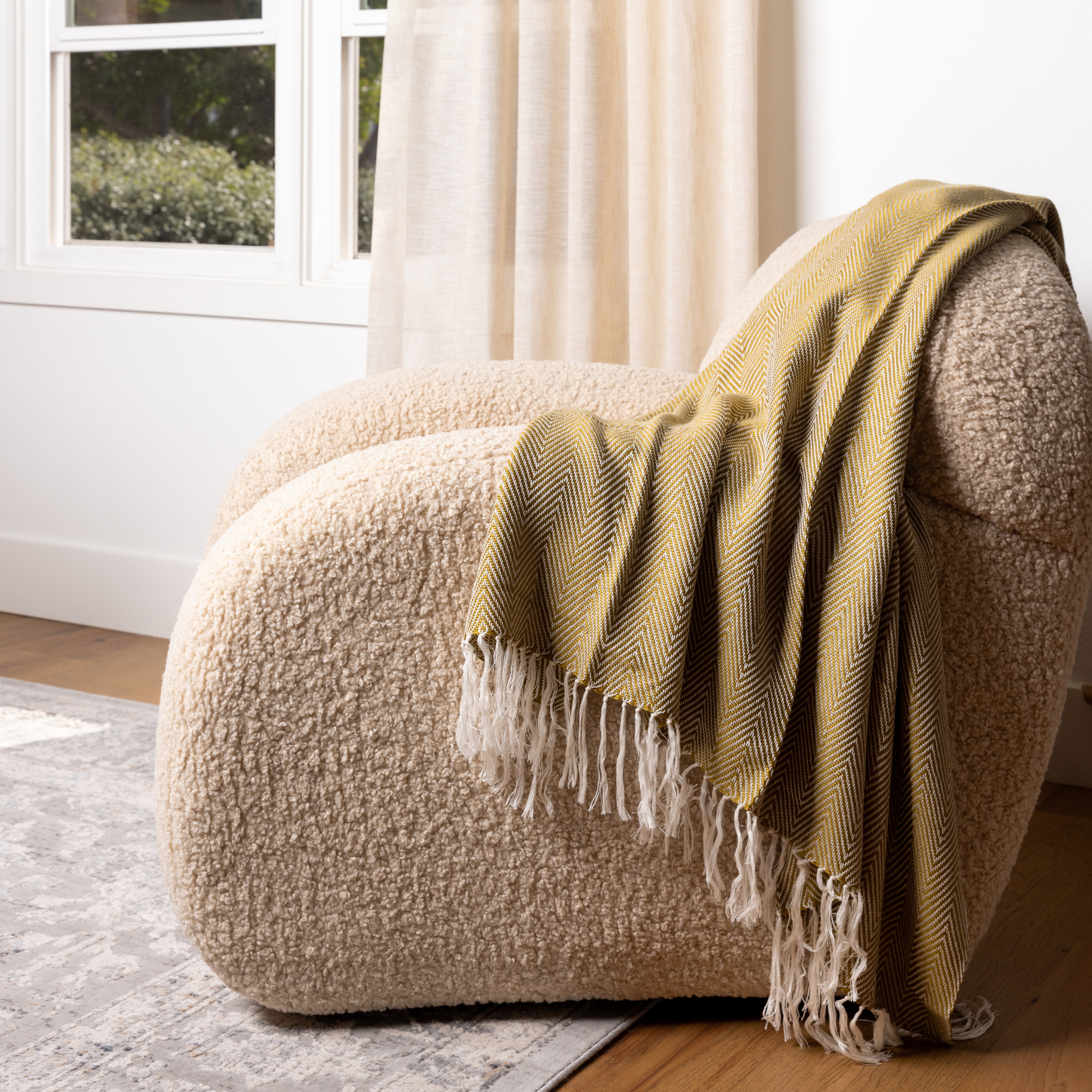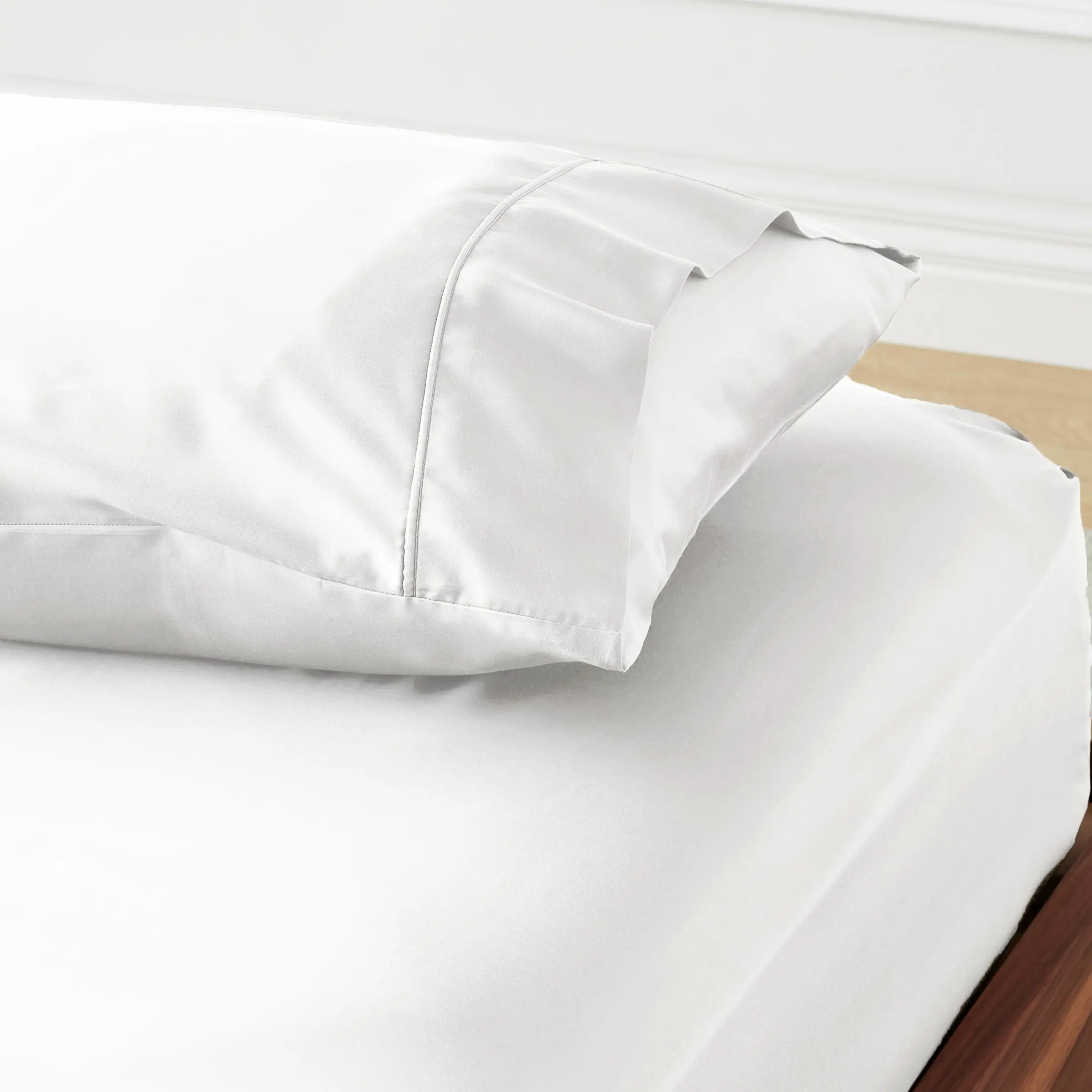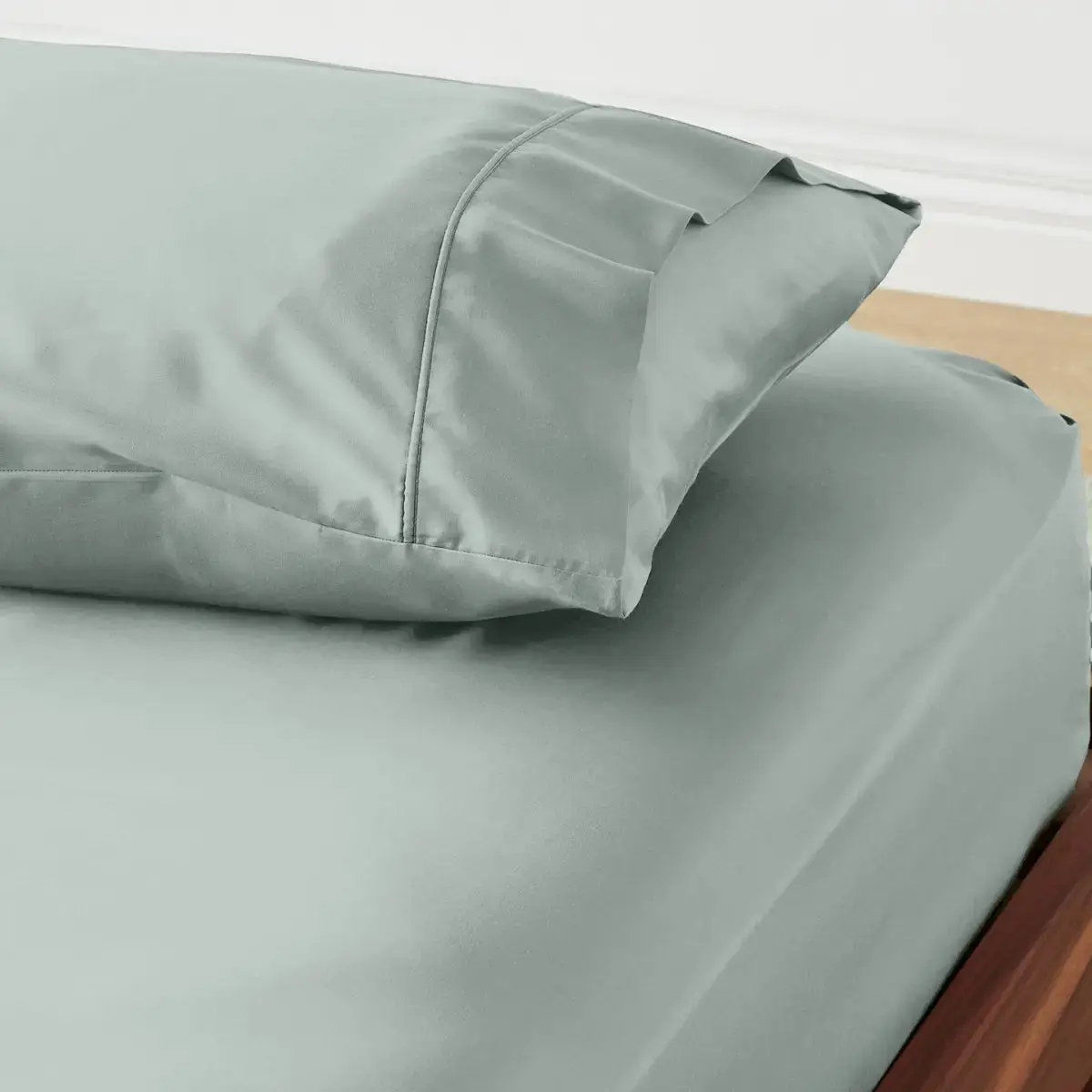ARE YOU SLEEPING IN TOXINS? IF YOU AREN’T SLEEPING IN ETTITUDE SHEETS, YOU LIKELY ARE.
For those 85.4 million people suffering from a skin condition, from acne to psoriasis, the sheets you put on your bed can be downright critical. Suffice it to say that when you learn the chemicals used to make sheets, skin condition or not, you will want to reconsider what you are jumping into for a ‘peaceful’ night’s sleep. Just Google “harmful chemicals in your bedding,” and it will get you motivated.
If you have a compromised skin barrier, substances like benzothiazole, often used in dyes and manufacturing textiles, have an easier time penetrating the skin and causing irritation or worsening the condition. Even without a skin condition, a study published in Environmental and Pollution Science International shows that benzothiazole compounds used in textiles or other consumer products have the potential to migrate from the product onto the skin and be absorbed into the body, which could pose health risks, particularly with prolonged or repeated exposure.
Renowned biotech scientist, Dr. Barbara Paldus, Founder & CEO of Codex Labs and Director at EWG, recommends researching the textiles you sleep on as they can affect your skin health. Standard fabrics like conventional cotton, silk, or bamboo viscose are treated with harmful chemicals that can disrupt the skin's natural microbiome. But buyers beware of the “greenwashers” cherry-picking the positives and glossing over the toxic chemicals used in processing.
Kat Dey, co-founder of ettitude, the material innovation company behind the groundbreaking CleanBamboo® fabric, adds, “The presence of harmful chemicals in bedding is vast, as are the potential impacts on health and the environment. Many manufacturers gloss over or greenwash those facts.”
Dey explains, “The chemicals commonly found in bedding include: chlorine, flame retardants, phthalates, formaldehyde, pesticides, and heavy metals, among others. These chemicals can adversely affect hormone levels, immune function, organ health, and reproductive health. They also have a negative environmental impact, including soil, waterways, and air pollution.”
Dr. Paldus recommends ettitude’s CleanBamboo®, which uses food-grade solvents and low impact dyes, making it the safest option for people’s skin. She adds that CleanBamboo sheets and fabrics are not only soft and smooth but also reduce skin creases and irritation. “Protecting the skin barrier and its microbiome is one of the most important aspects of skin health.”
Read the full article here.






























































































